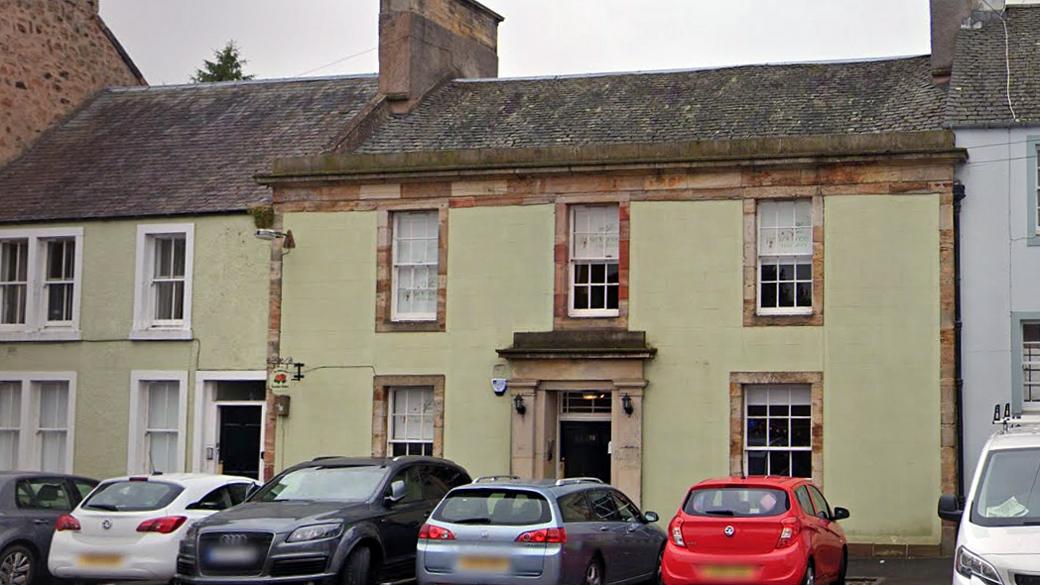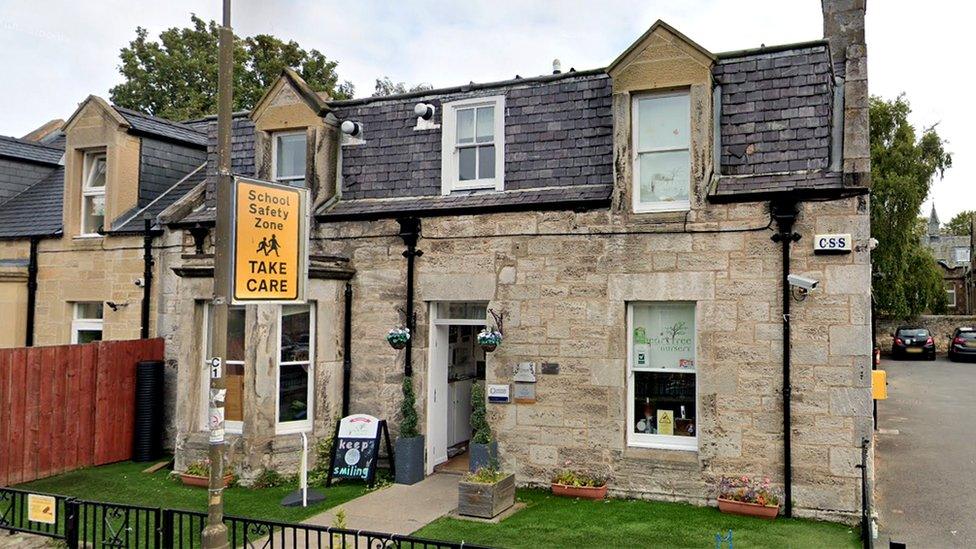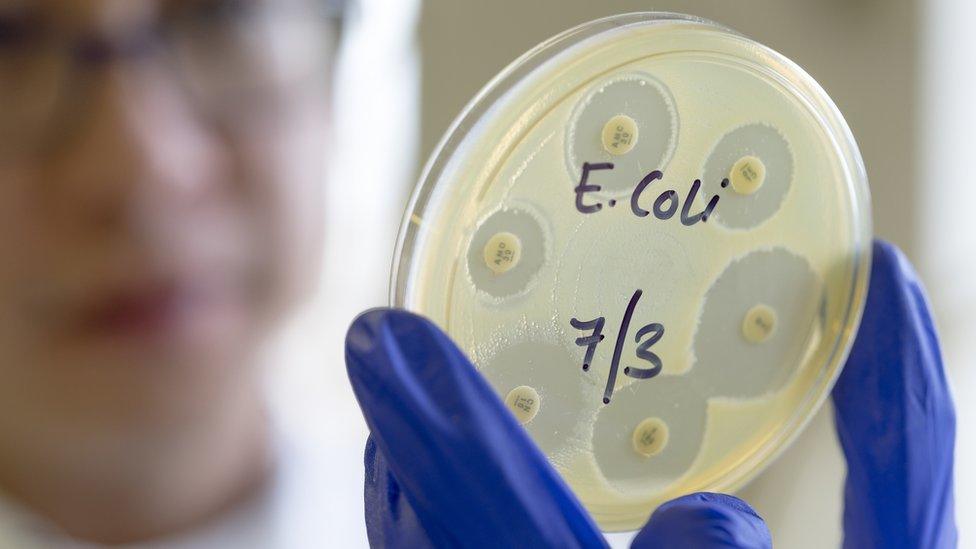Closures now at four nurseries in E. coli outbreak
- Published

Pear Tree Nursery in Church Road has been linked to 28 cases of the bacteria
Four nurseries have closed amid an outbreak of E. coli in the NHS Lothian area.
More than 30 cases have now been detected across East Lothian.
Investigations so far have not yet revealed a specific source but parents and carers of children who attend the closed nurseries have been asked to provide samples as soon as possible.
Church Street Pear Tree nursery in Haddington was the first to close after 28 cases were found.
The nearby Meadowpark branch was then closed as a precaution after symptoms were reported.
A third nursery - West Road Pear Tree Nursery closed as a precaution after reports of a sickness bug.
And Musselburgh Private Nursery in Bridge Street shut on Friday after several cases of a gastrointestinal bug.
NHS Lothian has been working on the outbreak since the beginning of August.
It has formed a multi-agency Incident Management Team (IMT) to investigate the cluster of cases.
Most cases are reported to be mild - with some children in hospital in a stable condition.

Cases have been confirmed at Pear Tree's Meadowpark nursery
Testing is ongoing to identify the strain of the infection and any links.
BBC Scotland has seen a letter sent to parents requesting that all children and staff at Meadowpark submit two stool samples, 24 hours apart, to ensure they are not carrying the infection.
The letter said this included children who had left the nursery since 15 July.
Public Health said they would issue exclusion orders to those who had been at the nursery since that date.
This means they have to remain at home until both their sample results are negative.
'Complex situation'
Dr Richard Othieno, chairman of the incident management team and public health consultant at NHS Lothian, said: "This is a very complex situation and we need to take a very cautious approach.
"We have now identified a small number of new cases of E. coli in Meadowpark Pear Tree Nursery after extensive sampling and testing.
"West Road Pear Street Nursery remains closed and we have asked for a room within Musselburgh Bridge Street to close. We need families to work with us to ensure that they do not mix with other children and adults if they are asked not to do so by our health protection team.
"I know this is really difficult, especially for families who are eager to return to work and school, but it is essential."
He urged anyone who had not yet handed in a sample to do so as soon as possible to rule out any links with E. coli.
Dr Othieno said it was vital for siblings or those children leaving nursery, taking up a new nursery place, or starting school for the first time to remain at home until their exclusion period was complete if they had been in contact with someone with E.coli or any other vomiting bug.
He added: "This outbreak reinforces the importance of washing hands regularly, particularly before eating or preparing food, and after going to the toilet."

What is E. coli?

Anyone who attends or works at the school has been asked to stay at home and get tested
Escherichia coli (E. coli) bacteria are found in the intestines of humans and animals. There are many different types, some are harmless and others can cause a variety of diseases.
The bacterium is found in faeces and can survive in the environment.
E. coli bacteria can cause a range of infections including urinary tract infection, cystitis (infection of the bladder), and intestinal infection.
E. coli infections can be serious and often cause severe diarrhoea, sometimes with blood in it, abdominal cramps and fever.